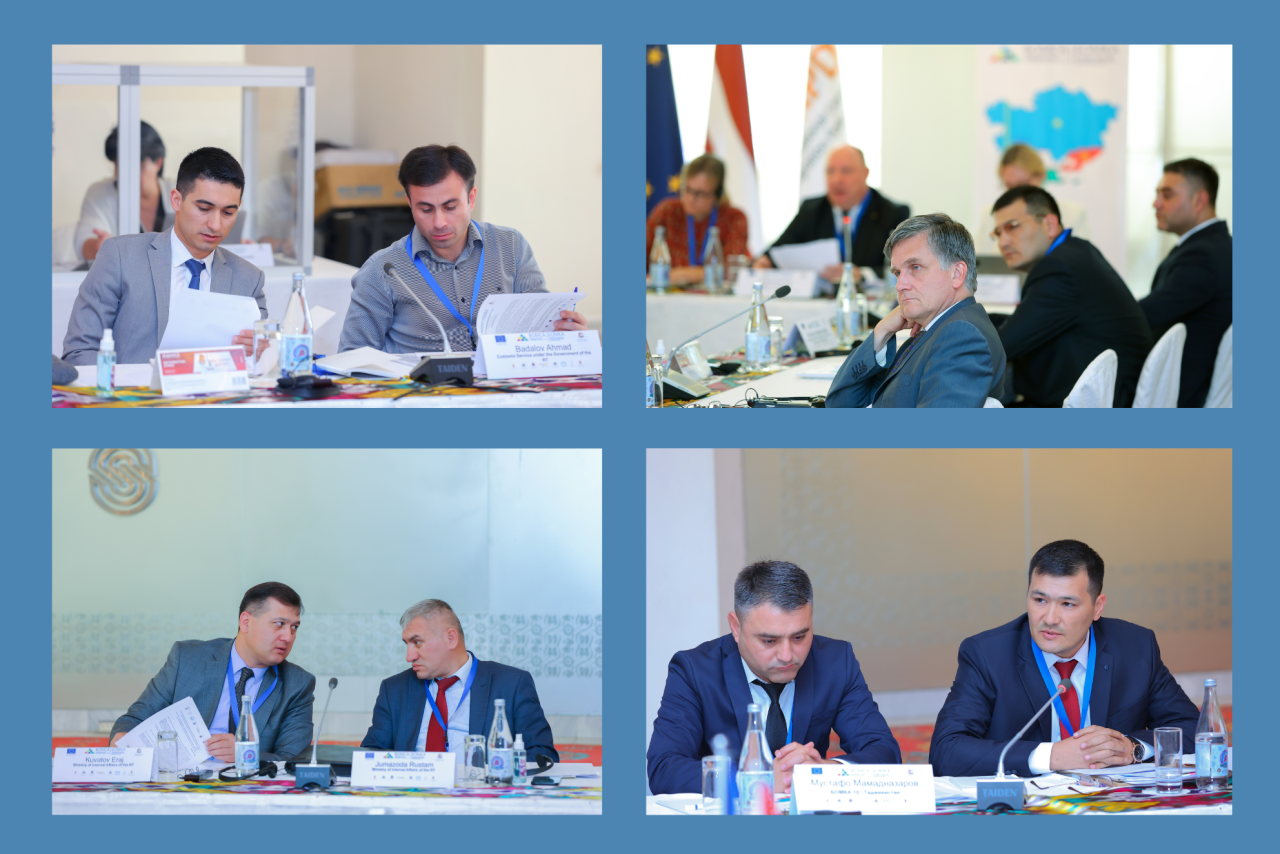From October 6-7, the latest round of National Steering Group (NSG) meetings was held in Dushanbe, Tajikistan. The meeting was aimed at reviewing the Programme’s progress for the year and to define plans for the upcoming period. For this purpose, the BOMCA 10 leadership, representatives of the European Union and implementing partners met with the key partners, such as state agencies and international organisations.
In his opening speech, Deputy Project Coordinator Mr. Vladimirs Zaguzovs highlighted the importance of the NSG not only in terms of assessment of already implemented activities, but also its instrumental role in laying the foundations for further cooperation with national partners. Mr. Maris Domins, Regional Manager, praised the efficiency of established communication channels and cooperation mechanisms.
The NSG discussions started with the joint session on October 6, then followed by the bilateral thematic consultations next day separately with each of the key national stakeholders to analyse post-activity results and with international stakeholders to discuss the partnership opportunities for the next year (including an assessment of the previous cooperation).
The Programme Component leaders have provided a brief information on its implementation in reporting period, as well as having presented a conceptual overview of the planned activities for the next period of project implementation.
They reported that out of 93 activities across four thematic areas on regional and national levels, 17 took place in Tajikistan. Last year, a series of workshops were carried out for the Republic of Tajikistan government agencies as Border troops, Customs Service, State Committee for Food Security, Ministry of Internal Affairs, Drug Control Agency, Migration Service, Ministry of Economic Development and Trade, Committee for Local Development and Committee on Women and Family affairs. These activities aimed to increase capacity on identification and profiling techniques, on methods and instruments for practical risk analysis and on strategic risk analysis, on fight against cross-border crime for Intelligence Officers and Investigators, such as smuggling of drugs and drug precursors.
In addition, technical assistance missions on the implementation and development of a distance learning concept and equipment for the Customs Administration of Tajikistan and on the analysis of customs legislation in the transit area were carried out by BOMCA. The aim of the technical assistance was to assist the Customs Administration in the evaluation of the existing national transit system, application of the TIR Convention, and analysis of legislation and relevant administrative instructions on transit regimes.
Also, BOMCA carried out a technical assistance mission and organised a round table on the functioning of the Customs and Business Advisory Council (Customs Advisory Council) in strengthening its function of increasing the efficiency of cooperation between the Customs Service and the Business Community, on the simplification of customs procedures and the development of international trade. Tajik heads and instructors from the Border Troops and Drug Control Agency (K-9 centres) further learned about the best practices of the European Union on detection of arms, explosives, ammunition, drugs, precursors and currency.
It is noteworthy that the results of the Programme’s activities include action points proposed to the national partners in the format of recommendations, guidelines, operating procedures and training manuals. During the meeting, all parties reiterated their mutual interest in effective cooperation to increase achievements and expressed their dedication to the overall priorities and focus on the upcoming activities.

